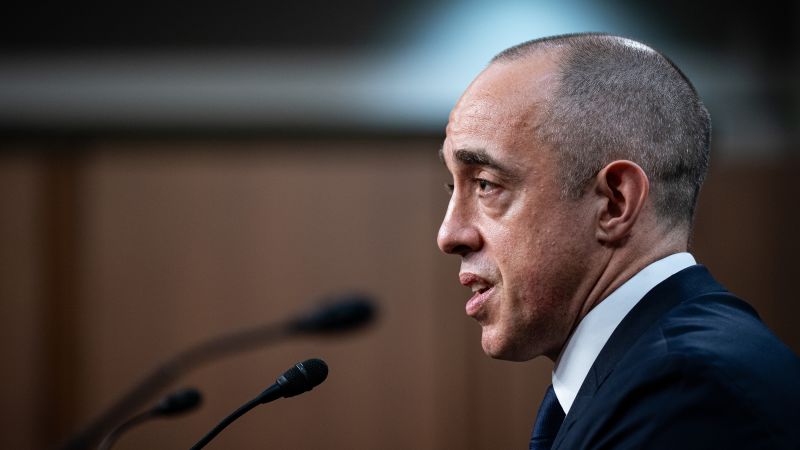On Thursday, members of the Senate Judiciary Committee voted to advance Emil Bove’s nomination to a federal judgeship, despite significant pushback from Democratic senators. The vote saw all twelve Republican members backing Bove’s candidacy, which has drawn considerable controversy due to Bove’s previous role as President Donald Trump’s personal attorney. Democratic Senate member Cory Booker vocally condemned the proceedings, expressing his outrage toward Republican Senator Chuck Grassley, the committee’s chairman. In a dramatic display, all Democratic lawmakers walked out of the meeting, illustrating their discontent with how the nomination was being handled.
If confirmed by the entire Senate, Bove is poised to secure a lifetime position as a judge on the 3rd US Circuit Court of Appeals. During the meeting, Booker, representing New Jersey, denounced the nomination process, stating, “I have respect for you Mr. Chairman, but this is outrageous, this is unacceptable, this is wrong.” He accused his Republican colleagues of abusing their power and compromising the Senate’s integrity as they proceeded with their vote unperturbed.
Bove’s nomination had previously sparked controversy as Democrats voiced their concerns about his tenure at the Justice Department, particularly under Trump’s administration. His tenure was marked by several contentious decisions, including mass firings at the Department of Justice (DOJ) and intimidation tactics towards officials opposing Trump’s immigration policies. Moreover, he was involved in efforts to drop corruption charges against New York City Mayor Eric Adams and participated in investigations concerning individuals connected to the events of January 6, 2021, when the Capitol was stormed.
In a show of bipartisanship against Bove’s nomination, over seventy-five former judges, including both conservatives and liberals, urged the Judiciary Committee to reject his candidacy. This opposing sentiment was compounded by a recent whistleblower letter from a former DOJ employee who alleged that Bove and other officials aimed to mislead courts. The whistleblower’s claims indicated pressure from Bove, suggesting that the DOJ might disregard court orders if such orders conflicted with Trump’s objectives.
Throughout his confirmation hearing from the previous month, Bove had rejected these allegations, stating he had “no recollection” of any such misconduct. This dismissal did little to alleviate concerns, as Grassley defended Bove, asserting that accusations directed at him were largely politically motivated and lacked substantive merit. “What we’re witnessing has all of the hallmarks of a political hit job done for maximum media splash with minimum substance,” Grassley remarked.
In retort, Booker maintained that there was indeed a pattern of concerning allegations against Bove, which should not be overlooked by the committee. The tension surrounding Bove’s nomination is indicative of a broader divide within the Senate regarding Trump’s Justice Department and its actions, particularly in connection with Attorney General Pam Bondi’s management of sensitive cases involving accused sex trafficker Jeffrey Epstein. Trump has previously defended Bondi and disparaged supporters demanding further details on the matter.
Bove is notable not only for being Trump’s personal attorney but also as the first among them to be nominated to serve on the federal bench. He was instrumental in defending Trump in federal criminal charges that were subsequently dismissed as well as in the New York hush-money case where he was found guilty on all counts.
The Senate Judiciary Committee also advanced the nomination of Jeanine Pirro to the position of the District of Columbia’s U.S. Attorney, the chief federal prosecutor in the area. Pirro, a former Fox News personality and district attorney for Westchester County, is currently serving in an interim capacity, having taken over from Trump’s earlier nominee, Ed Martin, who faced substantial opposition.
Before the meeting concluded, all Democratic senators had vacated the room in protest. Grassley referenced an earlier incident involving Democratic Senator Dick Durbin, when similar tactics were employed against Republican nominees, emphasizing that such actions were not unprecedented. As the meeting drew to a close, he reiterated the need for the committee to continue moving forward with its proceedings.
This ongoing saga around Bove’s nomination illustrates the intense partisanship permeating the Senate, raising questions about the integrity of judicial nominations in an increasingly polarized political landscape.








